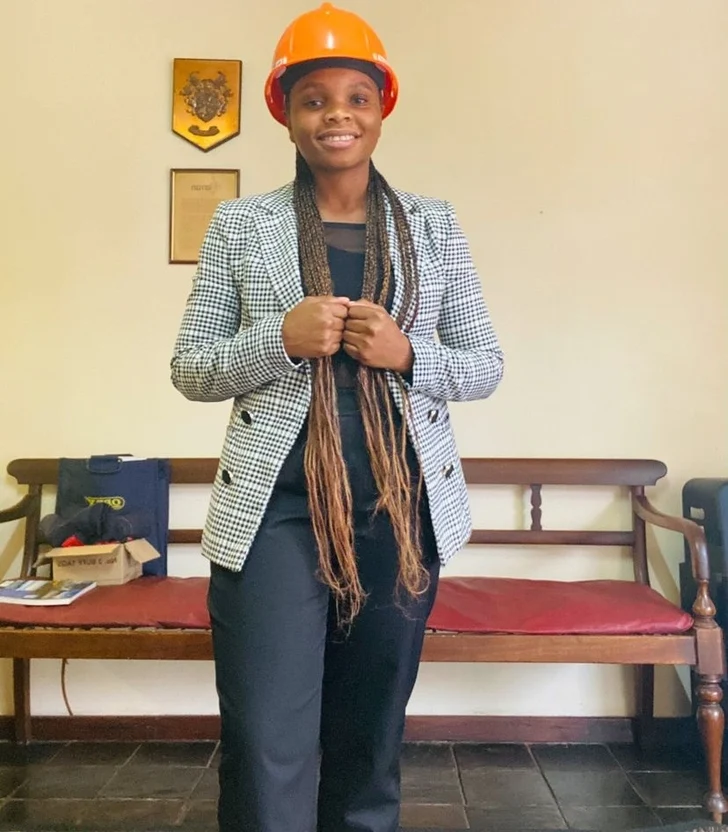Geological careers in Kenya is not quite common. This is probably due to the limited number of universities offering the course and awareness of the course to the general public. However, two universities currently offer a Bachelor of Science degree in Geology in the country. They are the University of Nairobi (UON) and the South Eastern University College (SEKU). A Bachelor of Science degree in geology is the course that ultimately leads to becoming a registered geologist in Kenya.
At the University of Nairobi, the B.Sc Geology degree course
is designed as an Applied Science that will produce graduates with the
necessary knowledge and practical skills to work in mineral, water, energy, and
environmental fields. However, students can specialize in Geology by enrolling
in Geology courses only in the third and fourth years of their B.Sc. program.
With this regard, Geology students are advised to take appropriate courses in
Chemistry, Mathematics, and Physics in their first and second years of study,
in addition to geology courses.
Upon completing a B.Sc Geology degree or a masters course in
geology, one can take up one of the following geological careers in Kenya or
abroad.
- Engineering
geologist
- Geochemist
- Geophysicist
- Geoscientist
- Geotechnical
engineer
- Hydrogeologist
Steps to being a registered geologist in Kenya
To practice geology around the world requires one to have a practising licence. This means having just a degree certificate is not enough to work in the industry. Therefore, this section will guide you through the various stages required to register as a geologist in Kenya. There are basically two major steps involved in the registration process. The first is the membership to the Geological Society of Kenya (GSK), and secondly the registration with the Geologist Registration Board (GRB).
1. Membership to the Geological Society of Kenya
The Geological
Society of Kenya (GSK) was established in 1974 to cater for the needs
of geologists in Kenya. It plays an important role in advocating for the
rights, welfare, and needs of its members and the geosciences community as a
whole. Membership to GSK enables one to participate in conferences and
seminars, welfare contributions and access and contribute to the society’s
publications.
Membership to GSK varies from professional membership,
graduate membership, student membership, technician members, associate members,
institution, firm, and fellow or honorary members.
The following are the membership fees and annual subscriptions for each type of membership.
This article only focuses on professional membership to the
geological society of Kenya. This membership is important for applying for the
practising license with the Kenya Geology Registration Board (GRB). Professional
membership to the Geological Society of Kenya is for individuals
practising or who intends to practice a geological career. One can become a
professional member by upgrading from a student or graduate membership or
through a fresh application if one is not previously a student or a graduate
member.
Requirements for GSK professional membership:
- Application
form – filled and signed
- Curriculum
vitae
- Certified
copies of transcripts and degree certificates
- Three
copies of technical reports
- A
cover letter providing a brief account of geological experience and
reasons for application for GSK professional membership
- Must pass an oral interview usually scheduled a month from the time of submitting the application
2. Registration with the Geology Registration Board (GRB)
After the professional membership certificate award by the Geological Society of Kenya, one can then apply for the practising licence with the GRB. A geologist will be required to fill the application form again and submit the following prescribed items;
- Copies
of the original degree/diploma certificate and transcripts certified by
Commissioner of Oaths
- Curriculum
vitae
- Letter
from the geological society or certificate
- Abstract/contents
page of publications, papers or technical reports
The application form requires one to provide a chronological
history of work experience accompanied by the names and addresses of the
referees. All three references are from already registered geologists in Kenya
approved by the GRB. Once an application is submitted, an interview will
be scheduled by the board. A successful interview will lead to the issuance of
the practising licence! Although many geologists feel the process is quite
long, it remains a valid way of becoming a registered geologist in Kenya.
What are the application fees for the registration of
geologists at GRB?
A non-refundable application fee of Ksh 1000 ($10) is made through the details provided by the GRB registrar.

.png)